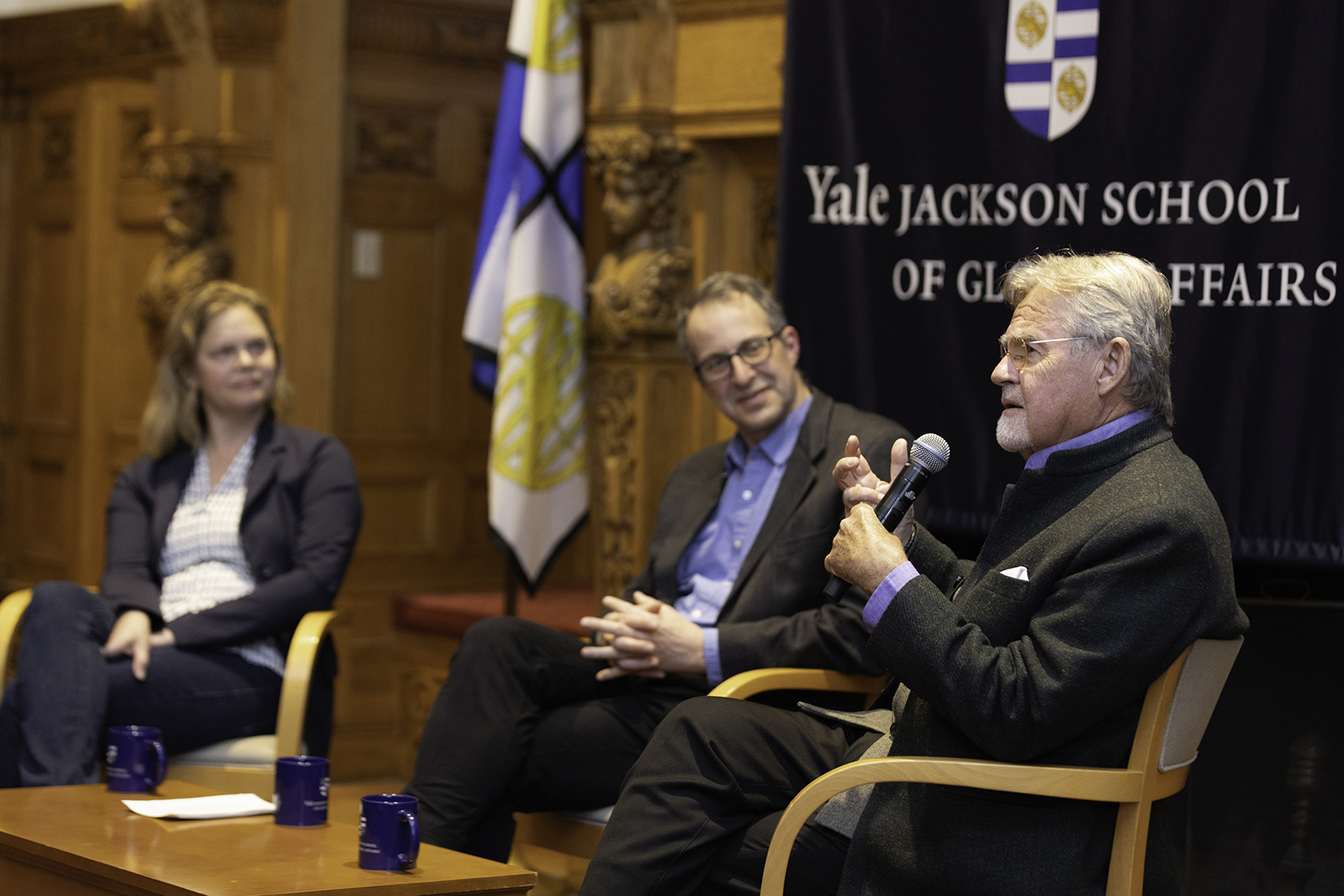Pulitzer Prize-winning authors on the art of writing biographies
On March 4, the Jackson School of Global Affairs hosted journalist Kai Bird, author of “American Prometheus: The Triumph and Tragedy of J. Robert Oppenheimer,” for a discussion on how biographies help tell the story of human history.
Bird, who won the 2006 Pulitzer Prize for Biography, was joined in conversation by Yale historian Beverly Gage, who was awarded the 2023 Pulitzer for her book, “G-Man: J. Edgar Hoover and the Making of the American Century.” David Engerman, Leitner International Interdisciplinary Professor of History and Global Affairs, served as moderator.
Bird has written several definitive biographies of key historical figures, including American diplomat and lawyer John McCloy, CIA officer Robert Ames, and President Jimmy Carter. With co-author Martin Sherwin, he wrote the acclaimed Oppenheimer biography, which inspired the blockbuster 2023 film, “Oppenheimer,” directed by Christopher Nolan.
Oppenheimer was “a mysterious, Delphic figure,” according to Bird, whose work on developing the atomic bomb made him one of the most important figures of modern history and ushered in “the atomic age,” creating a new dynamic for global politics, diplomacy, and national security that still endures.
“The story of Oppenheimer’s life and work raises existential questions of living with the bomb,” said Bird. In the years that followed World War II, he added, Oppenheimer also predicted many of the modern-day political challenges — from nuclear proliferation to political division — and his insights have now become part of the current debate taking place around the rise of artificial intelligence.
“We need scientists who can help us adapt to this new technology, which is what Oppenheimer was trying to do after the war,” Bird said.
Bird and Gage also discussed the process of writing biographies, which he jokingly called “novels with footnotes.”
“[Biographies are] a powerful medium to convey history, a powerful form of storytelling,” Bird said. “While telling a person’s story, you can convey the context and the forces at play around them. You can humanize people who are famous or controversial by focusing on the small parts – their relationships, their hobbies, right down to how they treated their pets.”
A major challenge in writing a biography is finding that balance between the subject of the story and what is occurring around them, Gage said.
“Biography has a form that people can connect to, but it does have a completist issue. You’re focused on the significance of the individual, which means you have to include parts that were important to the subject’s story even if it isn’t interesting to you,” she added.
“It’s never the most complete picture of history,” Bird said. “You may have to sacrifice a little of the balance, and I think it’s justified. It’s storytelling.”













